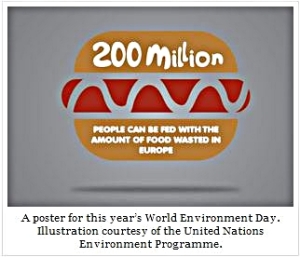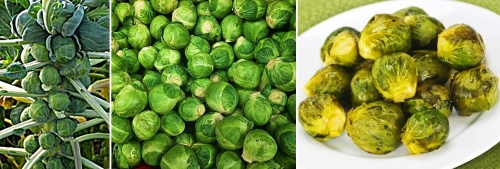
Images from: Joonggul Ro’s PG02
This BBC article is based on food waste figures published by Tesco for the first six months of this year.
The figures include food wasted before it arrives at Tesco, and food bought by its customers which is never consumed. Tesco estimates that “families are wasting an estimated £700 a year and we want to help them keep that money in their pockets, rather than throwing it in the bin”.
£700 represents about 50% of the average annual dual-fuel bill (gas and electricity) of £1,315 per household, so wasting less food could help a lot.
Tesco claims that 1 in 10 bananas purchased is thrown away, and also high in the customer wastage stakes is packaged salad (most likely because the bags are too big) and bread.
There are many ways to use up (or to avoid creating these left-overs in the first place):
- overripe bananas can be made into muffins (or banana bread) and can be frozen so you don’t need to eat them all at once; also, if you have a robust liquidiser or food processor you can create some fruity ‘ice cream’ by combining ripe bananas, frozen fruit (use it straight from the freezer) and yogurt;
- left-over bread ccould be made into croutons, breadcrumbs (dried in the oven, bread pudding or bread and butter pudding;
- maybe bagged salad should be avoided – you can always shred a white cabbage (a section of white cabbage will last a long time in the fridge) and grate root vegetables. If you do want some green leaves then Lidl does small bags of (unwashed) wild rocket (I think it was 79p last week).
Of course, another way to reduce customer wastage is to stop doing multi-buy deals on perishable food (at Tesco these deals on large bags of salad have ceased) and to reduce the size of perishable food displays which Tesco is also doing.
I can’t help thinking there’s a conflict of interest here. If lowering customer food wastage leads to customers spending less at Tesco, and Tesco sales fall, this won’t be good (for Tesco).
 Apparently customers are responsible for food waste, because when faced with a tray of apples they only pick the good looking ones (who wouldn’t?). But for some reason you don’t do this if you’re from Eastern Europe. I’m sorry, but I cannot believe that Polish customers seek out the worst apples in the tray!
Apparently customers are responsible for food waste, because when faced with a tray of apples they only pick the good looking ones (who wouldn’t?). But for some reason you don’t do this if you’re from Eastern Europe. I’m sorry, but I cannot believe that Polish customers seek out the worst apples in the tray!


